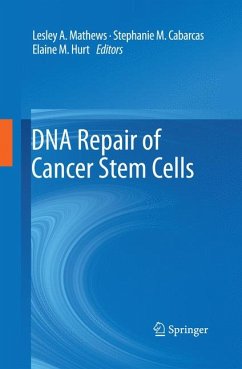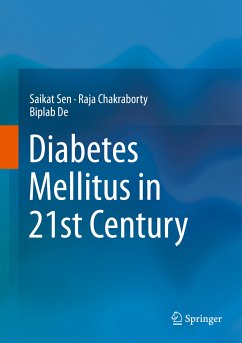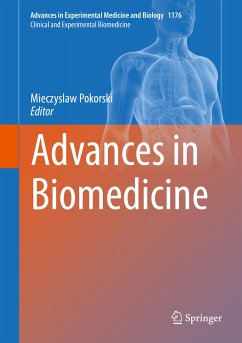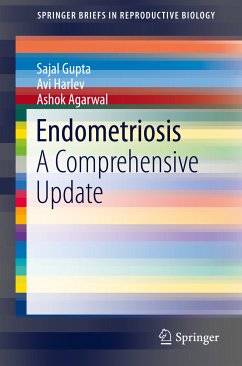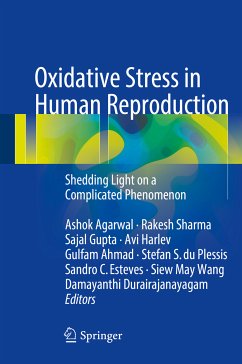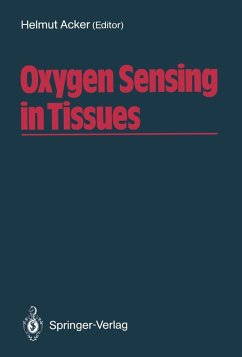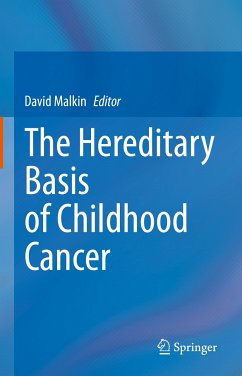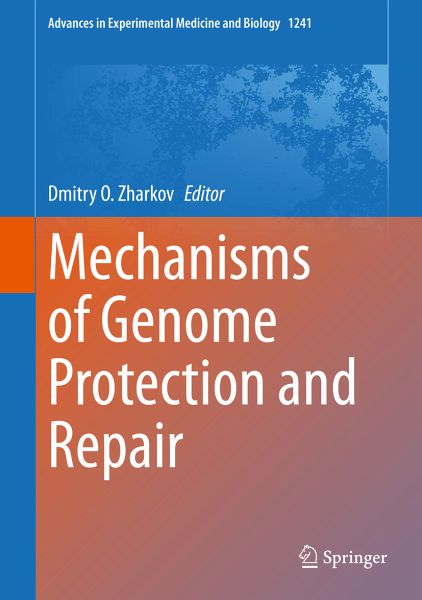
Mechanisms of Genome Protection and Repair (eBook, PDF)
Versandkostenfrei!
Sofort per Download lieferbar
120,95 €
inkl. MwSt.
Weitere Ausgaben:

PAYBACK Punkte
60 °P sammeln!
DNA is under constant challenge from environmental and endogenous metabolic assaults. Several layers of defence and repair systems allow cells to maintain stable genomes; in humans, dysfunction of these systems leads to cancer, neurodegeneration, and other pathologies. At the same time, recently it had emerged that targeted and regulated DNA damage and repair is a mechanism underlying several important cellular processes such as epigenetic demethylation and immunoglobulin gene diversification. The present collection of papers is aimed to cover new developments in the area of protective and reg...
DNA is under constant challenge from environmental and endogenous metabolic assaults. Several layers of defence and repair systems allow cells to maintain stable genomes; in humans, dysfunction of these systems leads to cancer, neurodegeneration, and other pathologies. At the same time, recently it had emerged that targeted and regulated DNA damage and repair is a mechanism underlying several important cellular processes such as epigenetic demethylation and immunoglobulin gene diversification. The present collection of papers is aimed to cover new developments in the area of protective and regulatory mechanisms associated with DNA damage. The mechanisms ruling the recognition of damaged nucleotides against the vast background of normal ones are reviewed. The role of extended non-catalytic domains that are often found in eukaryotic DNA repair proteins in contrast to their downsized, catalytic-only bacterial counterparts is discussed. Among the proposed subjects are the regulatory functions of bulky covalent modifications such as poly(ADP)ribosylation and ubiquitylation in DNA damage response, especially in the context of chromatin remodelling. As opposed to DNA repair, damage tolerance allows cells to replicate with lesions in the genome; the enzymes responsible are also covered. Finally, we present examples of modern multilevel understanding of the cell function and malfunction in the wake of genotoxic assaults such as oxidative stress, abiotic environmental stress, and DNA-damaging plant toxins.
Dieser Download kann aus rechtlichen Gründen nur mit Rechnungsadresse in A, B, BG, CY, CZ, D, DK, EW, E, FIN, F, GR, HR, H, IRL, I, LT, L, LR, M, NL, PL, P, R, S, SLO, SK ausgeliefert werden.



